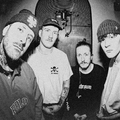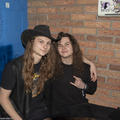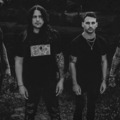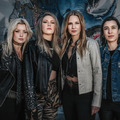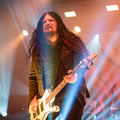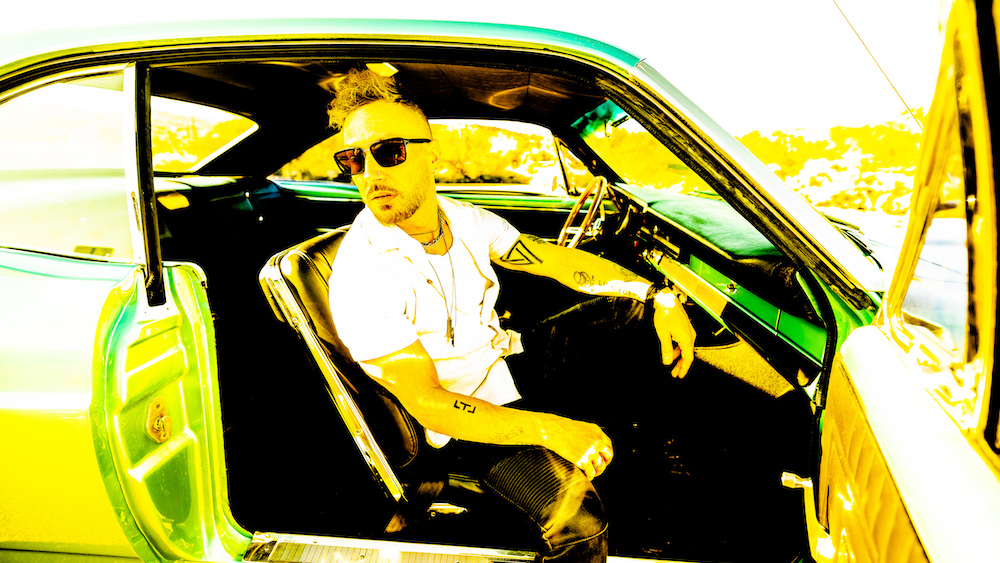
Greg Puciato just released his second solo album, named Mirrorcell. Some of our readers might remember him as the frontman of The Dillinger Escape Plan, or as a member of supergroup Killer Be Killed. Oh, and he just finished a tour with Jerry Cantrell. So we had more than enough topics and Greg was happy to discuss all of them in a detailed interview.
Rockstation: Hi Greg, where are you now? Are you back home from tour?
Greg: Hi, I am in Los Angeles. I just got back 5 days ago from the Jerry Cantrell European run and now I’m trying to deal with life back home and doing things I neglected while on tour.
Where and when did you meet Jerry first? How long have you been friends?
We met through Tyler Bates, who was in Marilyn Manson’s band with Gil Sharone who used to play drums in Dillinger for a couple of years. Jerry was doing a couple of shows back in 2019 and he needed a guest singer. He had already gone through a couple of people who didn’t work out. Then Gil and Tyler said to Jerry, “what about Greg from Dillinger?” So Tyler called me up one afternoon: “Hey man, would you wanna come up and sing some songs with Jerry Cantrell? He is trying to do some solo shows.” I said: obviously yeah, I would love to do that. So I came up and we ran through Would? and Down in a Hole and we just really connected musically and personally. And from that point on, we have been pretty close to being best friends. When he asked me if I wanted to do the touring for his record, the answer was yes. Whatever we end up doing with his record, I’m gonna be there.
You also contributed to the record, right?
Yeah, with vocals. But I didn’t write too much, not even one percent. The record is entirely his, there was no collaboration as far as the writing goes. I might have said, let’s do this harmony instead of that harmony or let’s try this instead of that, but he wrote all the music and all the lyrics.
Did you also perform some Alice In Chains during the tour?
Yeah, it was about 50-50 Alice In Chains and his stuff. I mean, he writes everything anyway, so to him there is not really much difference. When he starts to play them next to one another it is obvious that it was written by the same guy.
Some of the tour venues were quite huge places and also festivals. Did it mean anything special to you to perform Alice In Chains songs in front of such huge audiences?
Oh, of course! That is sacred material. If I wasn’t me, I would be looking at me with my arms crossed like who the fuck is this guy? If you are stepping up to sing that material, there is no room to suck. There is a lot of pressure: you are not just singing the songs of one of the best songwriters of his generation, but you are singing the songs of one of the most iconic-sounding rock singers of all time. And their fanbase is very protective of those songs, protective of the legacy and the memory of Layne Stayley. It is a very interesting place to find myself especially when considering that I was a fan. I think I was maybe 12 when Dirt came out. I was massively into alternative and Dirt was one of the favorite albums of my whole childhood. Singing those songs is a big honor.
How is touring different now in the– we hope - post-pandemic era? From the audience, I have not seen much difference, but maybe for the artists or for the touring staff there is. Have you noticed any difference?
It’s really not that different. We waited a lot and we didn’t wanna be the first to start touring right away after the covid restrictions were lifted. [Firstly] you had to travel in an isolated touring bubble that you were not allowed to leave, people were tested every single day, and it sounded miserable. I didn’t wanna go out in that environment, wanted to wait till it got as close to normal as possible. So on the tour there were not many differences. The only difference was that you got on a flight and you had to wear a mask on the plane or there was a little bit of extra security sometimes.
But when you are back on stage, the magic comes back, right?
Dude, that was the longest I have ever been off. Since I was 28 years old I have never been off tour for that long. I was concerned for myself that if I go on stage and start singing, will I feel the same passion for it? I’ve never been off even for 1 year. After covid hit, I took a year off, but by the time I went on tour, I hadn’t played a show for 3 years. But now I was in love with it right away, I felt exactly the same right away. If anything, it felt better because you really realized what had been taken from you. It felt closer to when I first started doing it. When Dillinger first started touring I was 21 and it was just exciting to be on tour, to be friends with one another and play shows. And as time goes on and it becomes your job and you play every song a million times and you are in a silly bunch, and you are not as good friends as you used to be, and it fuckin’ chips away the initial joy. But if you have it taken away from you for 3 years, and then brought back and there are new people, new songs and new energy around you, the whole thing felt sort of the way it did when I first started doing it.
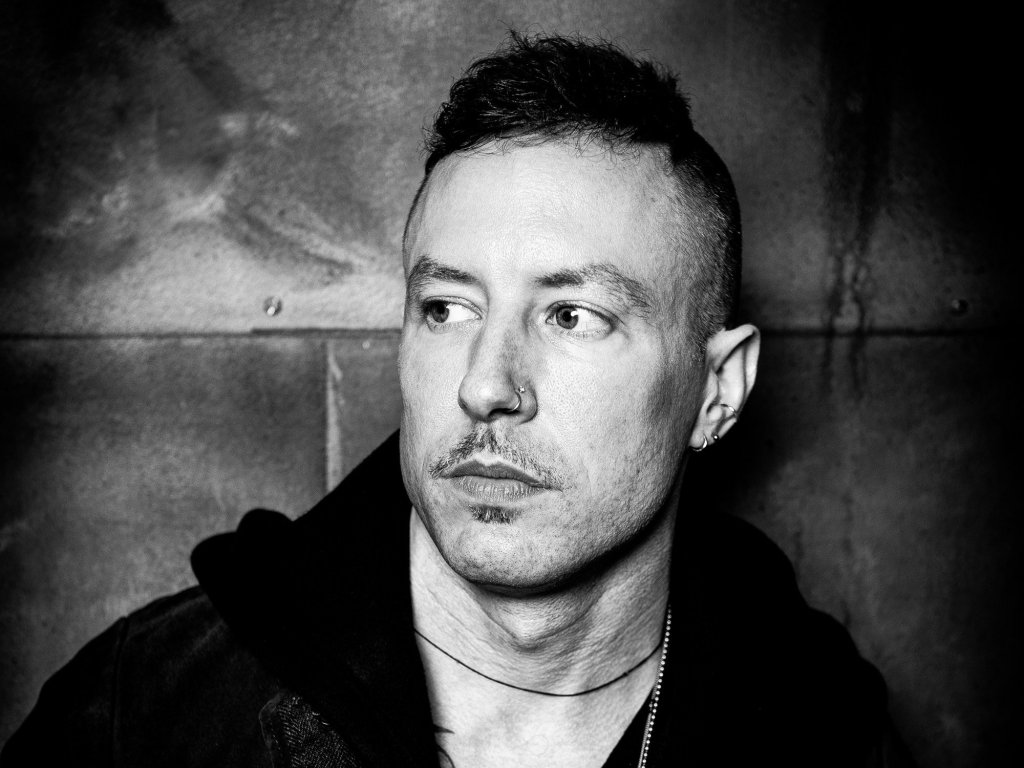
Your solo album, Mirrorcell, just came out recently. What was the main reason, the biggest drive to create the songs this time?
All the solo stuff started when we finished recording the last Killer Be Killed record, in March 2019. I sat down, and I was to write a new The Black Queen record. And that didn’t happen, I just started writing solo material. I had all this energy, maybe because I spent so much of my time on tour with Dillinger for the last 20 years. And I suddenly had more time and energy, and it has just channeled creatively. You know, when you are writing music, and not just vocals and lyrics, you can take the song wherever you want, there are so many tools at your disposal. You are not just using your voice or the lyrics but you can also use a guitar, use drums or a keyboard. And when we finished the first Killer Be Killed record, I just started writing and that became the first album, and then I couldn’t stop and that became Mirrorcell. I think it’s because I had time. And I fell in love with the guitar again. I didn’t really think of myself as a singer, I just thought of myself as someone who writes music, writes vocals, a musician.
Mirrorcell is quite a colorful album, so there were probably different influences and sources of inspiration. Did you listen to some specific music when you wrote the songs?
It is pretty obvious that Jerry had an influence on this one, I was around him a lot. At the same time as Mirrorcell was being written, I was learning and practicing Alice In Chains songs and all his songs with him. I really never look at influences intentionally. Wherever you are going in your life, if you are listening to something a lot, that influence is gonna go through your filter and end up in your output. And to me, it’s like taking a snapshot of where you are in your life. And that record -sonically, musically, vocally - is a snapshot of pretty much the last year of my life. So any of the influences like Alice In Chains or 90’s grunge, are because I’ve been surrounded by a lot of that in the last year.
And how did the recording process go? Did you have a sound engineer or external ear? Or did you record it all by yourself?
Oh no, I used Steve Evetts who lives and works 10 minutes away from me. And the studio he works in, we recorded all the Dillinger records, and anything I did since, like guest vocals, I did with him. We have such a long-standing relationship personally - we work really well together. When I had the demos together and started working on the recording, it was not even a question to me who was gonna do it. He is the closest thing that I have to a band member.
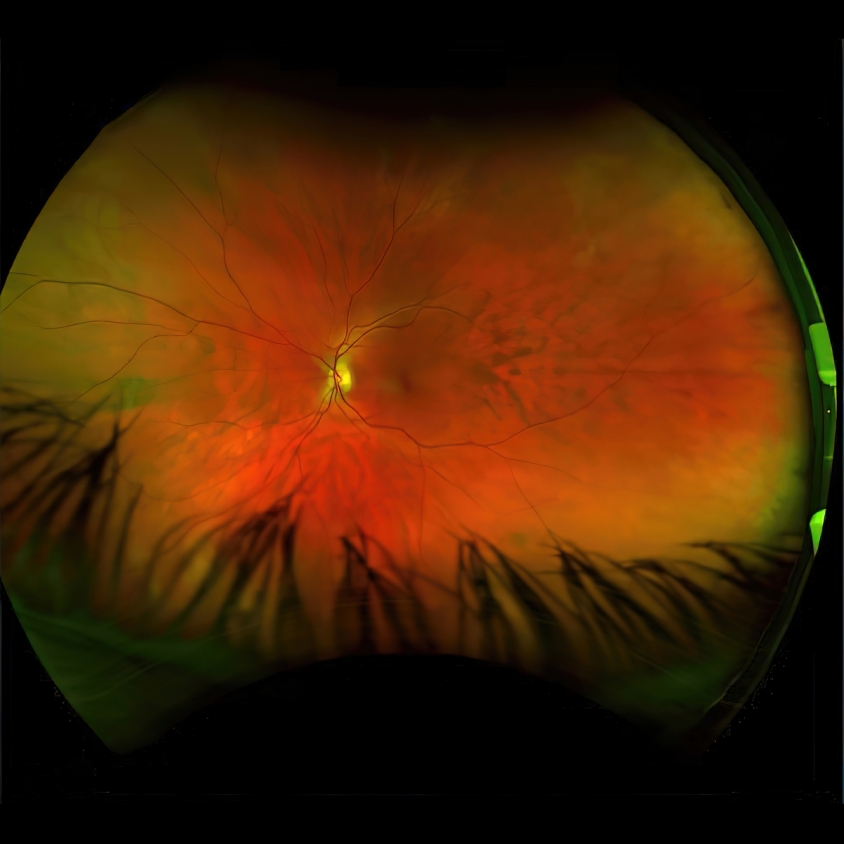
So the actual recording went quite the old-school way.
Yeah, we actually went into Dave Grohl’s spot called 606. We recorded drums at 606 because they have a really nice drum room, and we recorded it onto tape, which I never did before, I never recorded anything to tape. And we recorded everything else in Steve’s studio. All real amps, all real bass, everything was done in an actual studio. There wasn’t any guitar tracked in my dining room or anything like that.
Talking about the title, Mirrorcell, I had to google what it means and learned that it is quite new territory for science to find out the role of these neurons in the brain. What does it mean to you and how did it end up as a record title?
It’s funny, right? My definition of that word has not so much to do with science. I’m a big fan of double meaning. To me the title represents a prison cell, it is not like a biological cell, so it is a prison cell, made out of mirrors, which is the idea of you trapping yourself. Your ideas and tendencies are trapping yourself, your habits, your actions in your life, becoming sort of a trap, until they close and become a prison. You have to self-analyze, and figure out which tendencies of yours might be causing chaos or pain, and damaging your life. I think that being home for covid and sitting still really helps with this process. You don’t have anything to distract you and you are kind of forced to look at your own bullshit. So it is most of the subject of the record.
And does the cover picture somehow relate to that? I see it as an eye without an iris, but I guess it has another meaning as well, right?
Oh no, the cover is my eye. That’s a close-up of my eye. I have to have my eyes checked every now and then because my family has glaucoma. So I went to the doctor and when I saw it Isaid: that’s the cover. Because to me when I look at that, I am looking at myself. So when I look at that record, then I am looking at my own eye, because the whole record is like a self-examination.
There are two major surprises for the listener on the album, and one is Reba Meyers from Code Orange. How did you bump into her?
Code Orange opened for Dillinger when we played our final shows in 2017. And I’ve seen her playing guitar and she was a badass. Her stage presence and voice and everything were really unique and she had a spark in her that I could relate to. Then, when I was writing the song Lowered, I couldn’t get the vocals, I just could not write it. I had the music completed, but couldn’t get the vocals, I was really stuck on it. And the breakthrough moment was when I told myself this song needs a female component. Maybe a duet, but I still didn’t have anyone in mind. And I have recently come back to social media because I have been off social media for like 8 years. And I was looking through Instagram and I saw a video of her just rocking on a stage and I remembered how her voice was and how much I related to her energy and I texted her up like, “hey, I have a part on a song on this record you might dig.” And it turned out she had a few days free right after the tour quite near where we were recording, so she came to the studio and that was it, that was the key to the song. It was just a frenzy of ideas. The creative chemistry was pretty immediate and that song went from having no vocals to being done in about 4 hours. That’s the thing that you are missing when you do a solo record. Because you don’t really have anyone to carry the ball, you don’t have anyone else to bounce something off of. And it ended up being a really special song to me, a song I am really proud of, maybe my favorite from all the record.
The other one is I, Eclipse, it’s quite different from the others, with its nu metal vibe, or maybe Deftones vibe. Do you have a story about this song?
That song was written with a bass. I wanted a song with a really slow BPM, and maybe because Dillinger was so fast all the time I became a bit more drawn to slower BPMs and that song is obviously really slow. I don’t know what inspiration there was to it. Lyrically it is pretty easy to figure out, it’s about getting in your own way. But musically, I don’t know, I just pick up an instrument, and start tinkering with it and eventually something comes out that feels right for the moment and you just go with it.
Do you have any plans for touring with this album?
Yeah, that’s the tricky part, because I have to work around people’s schedules. Everything I am involved in is a pain in the ass now. When we were young, Dillinger was all we had, and it was easy to go on tour, because everyone was just all into one thing. But now, it is so difficult to schedule anything. We play a show in LA in November, and trying to book Europe for some time at the beginning of 2023. Hopefully it will work out.
For you, on top of being a songwriter, singer, and guitar player, you are also involved in publishing and management. Do you think that in the current music industry such versatility is a must? Or is it a new thing?
I don’t think you could have done it before, everything was a mystery before. Gatekeepers kept the information from artists pretty aggressively. It was much more difficult before the internet, before everything became mostly digital. It’s far easier now to find information and figure out how to do things. To me, ownership is inseparable now from the creative process. I feel extremely passionate about having full control over every aspect of a release. So if I want to decide to work with someone else ever again, they can’t fuck me. If you are working with a label, you are not going in blind if you already know how to do everything.
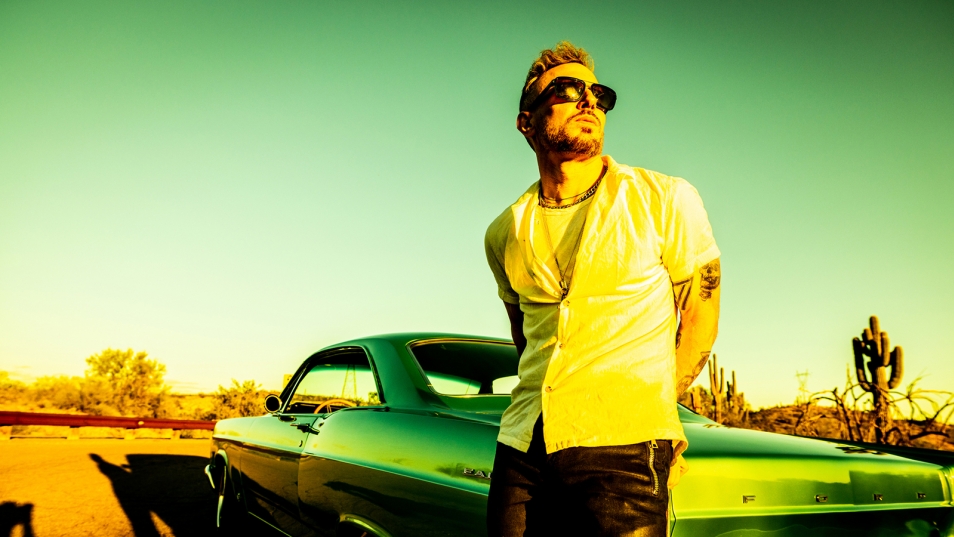
Mirrorcell was also released by your own label, Federal Prisoner. The ownership you mentioned - does it only mean creative control, or are there also some benefits from the financial point of view?
Well, the financial part is the most gratifying, but also really scary. Because you really have to go into debt at the beginning, if you are putting out a record. Because all these records you have to manufacture, and manufacturing costs a lot, pressing vinyl is fucking insane. Looking at tens of thousands of dollars of debt right at the gate and that’s a lot to take on. And when it fails, your record bombs, you are down all that money. It’s really nerve-racking, but when you do make your money back and you own 100 percent, that’s a lot different then getting like a 2% royalty, and you are lucky, if you sign with your label, to get 3%. Even from streaming the label pays you 15%, like 15 cents on every dollar – that’s a lot different that a dollar on every dollar. Why should I pay someone to do something I can do myself? And you can see all the analytics, too, where everything is coming from. You see exactly how much Spotify is paying, how much Youtube’s paying, like every fucking thing you can see. No one is hiding anything from you by just giving you a check and you don’t know where the fuck everything is coming from. So that can’t happen. But as I said, it is also scary, because you go into a massive hole when you start.
We already talked about the diversity of the songs, but if I see your catalog, it is also diverse: you have solo records, you are part of a supergroup, and you also worked with Jerry Cantrell. Just a theoretical question: if tomorrow, a well-established band approached you to be the singer, for example Fear Factory, who still haven’t announced their new singer, what would you say?
I don’t think I could do it right now. I’m out of capacity, man. I don’t feel like I have the amount of personal time that I wish that I had. I did it to myself, I am the one who chose to do all this, and have all this shit going on, but right now all I want more than anything is to just have a little free time. Hanging out with people, just have some space to breathe for a second. So now I would have to say no to that. And it has to be fucking insane, I would have to absolutely love the band to an insane degree.
Actually, I wanted to ask what is the next step after the album, or how long do you plan in advance, but you partly answered that already.
You know what? I tell everybody this and my friends laugh at me, because they just tell me that I say this every time but I never do it. I’m probably not going to take any downtime, but what happens is that I just find something else that I’m excited about. I have no idea what I’m gonna do next right now, I don’t really have any inclination to write, but it doesn’t take long, I get to some point and I’m gonna feel excited about a certain type of music or a certain instrument, and once that happens, it’s like a hook. Like, you are the fish who just bit the hook and that’s it. And I am very lucky that it keeps happening. My passion for music and creating is still there, and fortunately I am still excited about it.
I think no one would doubt it after hearing your album.
Thank you, man!
And the last question: will we see Killer Be Killed in Europe one day? Or maybe in Hungary?
We talk about this every month. Ben Koller lives near me and we talk all the time, as we see each other often. We have a group text and a group email and trying to figure out if there is any opening for us to be able to tour or to play some festivals. And it’s just being so hard to find. We try all the time just to make like one week or two weeks happen, or a weekend. Especially Max, he just fucking never stops, just goes and goes and goes, and he plays like in 5 bands, so it really is difficult. But I believe that we will do it in the next couple of years.
So, there is probably a better chance for your solo band to come to Europe first.
Yeah, definitely!
